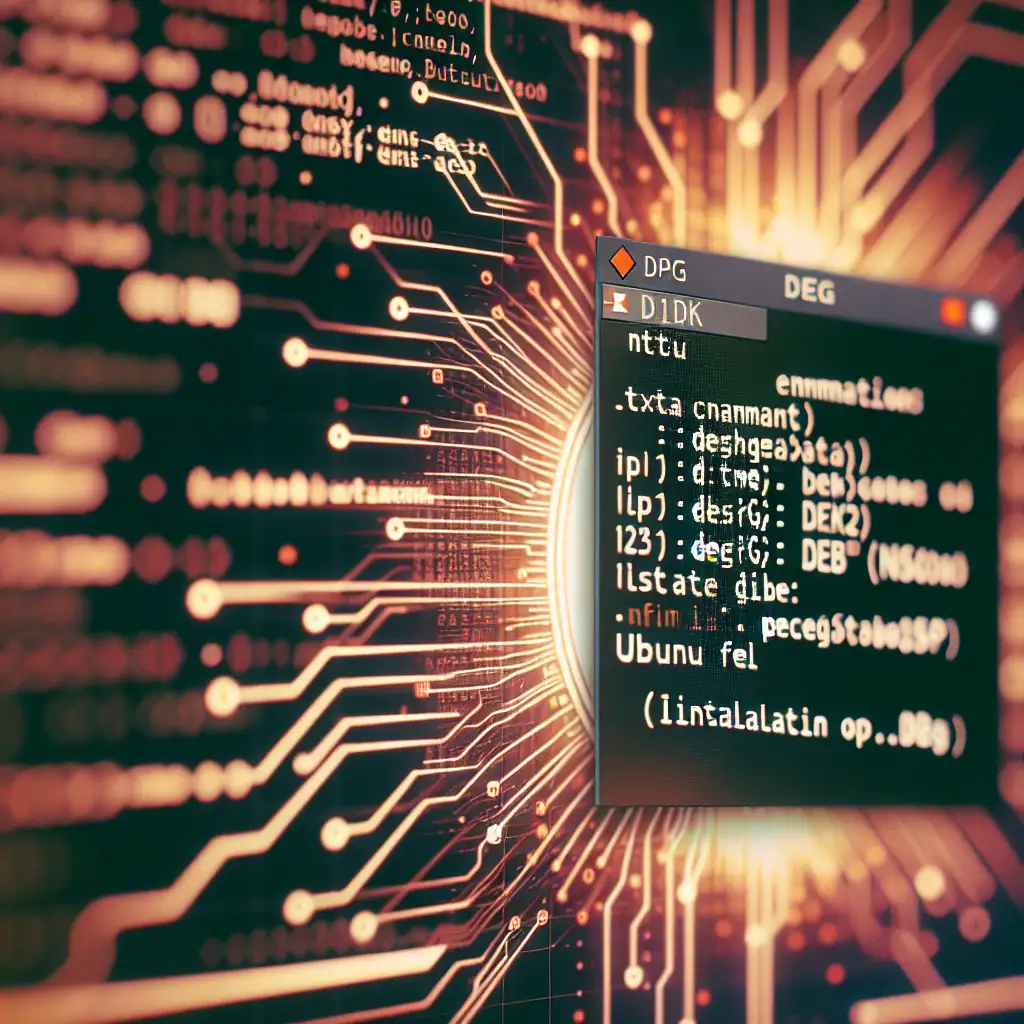Mastering the Installation of .deb Files in Ubuntu: Beyond Basic Commands
Why ‘apt install’ Isn’t Always Enough: Unlocking the Full Potential of .deb Files in Ubuntu
If you’re an Ubuntu user, you probably rely heavily on the apt package manager to install most applications. While apt install is powerful and convenient, it only works with software available in Ubuntu’s official repositories or trusted PPAs. But what if you want to install software that’s distributed as a .deb file directly — perhaps a proprietary app, beta software, or a customized package not in the repos?
Installing .deb files directly is a fundamental skill for Ubuntu users seeking flexibility beyond the official repositories. Mastering this process means you get access to a wider range of applications, can test bleeding-edge tools, and better control software versions — all while keeping your system stable and dependencies well-managed.
In this post, we’ll explore how to properly install .deb files in Ubuntu, troubleshoot common pitfalls, and move beyond the simplest commands to ensure smooth software integration.
What is a .deb File?
A .deb file is a Debian software package — essentially a compressed archive containing an application along with metadata, installation scripts, and dependency information. Ubuntu, being Debian-based, natively supports .deb packages, so you can install them directly without extracting or repackaging.
Basic .deb Installation: The Simple But Flawed Approach
Many users start with:
sudo dpkg -i package_name.deb
The dpkg tool installs .deb packages at the lowest level. However, it doesn’t check or resolve dependencies automatically. This can cause issues when the package requires other libraries or tools that aren’t installed yet. You might see errors like:
dpkg: dependency problems prevent configuration of package_name:
package_name depends on libxyz; however:
Package libxyz is not installed.
To fix missing dependencies after using dpkg -i, you need a second command:
sudo apt-get install -f
This installs the missing dependencies and finishes configuring the package.
While this two-step method works, it’s inefficient and prone to confusion, especially for beginners.
The Modern and Recommended Way: Use apt or apt-get with Local Files
Ubuntu’s apt and apt-get commands can install local .deb files and automatically resolve dependencies — saving you from manual fixes.
Try this:
sudo apt install ./package_name.deb
or
sudo apt-get install ./package_name.deb
Note the ./ before the filename — this is important, telling apt it’s a local file, not a remote package.
What happens here?
aptscans the.debfile,- extracts its dependency list,
- checks for any missing dependencies in your repositories,
- downloads and installs them automatically,
- then installs your package.
This method simplifies the entire process into a single command, cutting down errors and saving time.
Using gdebi for a GUI or Lightweight Alternative
If you prefer a graphical tool or a lightweight CLI tool dedicated for .deb file installation, you can use gdebi.
First, install gdebi:
sudo apt install gdebi-core
To install a .deb package with automatic dependency resolution:
sudo gdebi package_name.deb
gdebi is often favored because it’s specifically built for .deb files and handles dependencies cleanly without pulling in all the overhead of the full apt system.
For a GUI version (useful for desktop users), try:
sudo apt install gdebi
Then right-click your .deb file in the file manager and choose “Open with GDebi Package Installer”.
Tips for Smooth Installation of .deb Packages
1. Verify the Source and Check Compatibility
Always download .deb files from trusted sources to avoid malware or broken packages. Ensure the package is compatible with your Ubuntu version (e.g., 20.04, 22.04).
2. Resolve Missing Dependencies
If apt or gdebi complain about missing dependencies not in the repos, you may need to:
- Add additional PPAs or repositories that provide those dependencies, or
- Download and install dependent
.debfiles manually, recursively managing them.
3. Remove Broken Packages if Things Go Wrong
If a package fails mid-install, you can clean up by running:
sudo dpkg --configure -a
sudo apt-get install -f
To remove a problematic package:
sudo apt remove package_name
sudo apt purge package_name
Example: Installing Google Chrome .deb Package
Suppose you want to install Google Chrome, which distributes a .deb file on its website.
- Download the
.debfile:
wget https://dl.google.com/linux/direct/google-chrome-stable_current_amd64.deb
- Install using
apt:
sudo apt install ./google-chrome-stable_current_amd64.deb
- If there are unmet dependencies (rare with Google Chrome), resolve them with:
sudo apt-get install -f
- Once done, launch Chrome from the app menu or terminal:
google-chrome
Summary
.debfiles let you install software outside Ubuntu repos, expanding your options.- Avoid
dpkg -ialone — it doesn’t install dependencies. - Use
sudo apt install ./file.debfor a one-step, dependency-resolving installation. - Consider
gdebifor a simpler, dedicated tool, especially helpful on older systems. - Always download
.debpackages from trusted sources and check compatibility. - Keep troubleshooting commands in mind to repair or remove broken installs.
Mastering .deb installation means you gain better control of your Ubuntu system, unlocking the ability to install nearly any software seamlessly. Gone are the days of “dependency hell” — with these commands in your toolkit, you’ll install .deb packages like a pro.
Got a .deb package you want help installing? Or tips to add? Drop a comment below!
